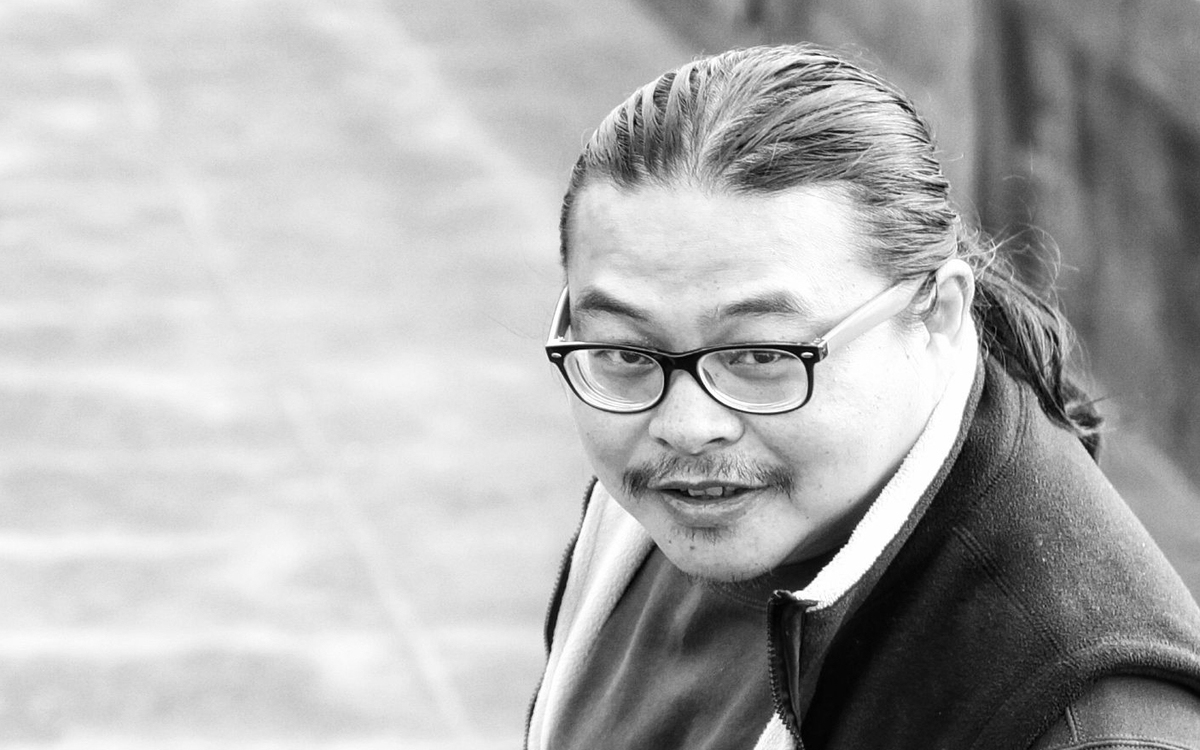Crosscurrent, the only Chinese film in competition at the 66th Berlin International Film Festival, follows Gao Chun, a young cargo ship captain, as he sails up the Yangtze River in search of love. He gradually realizes the woman he encounters at each port appears to be the same person — An Lu — except she is getting younger and younger as the boat moves upstream toward the river’s source in Tibet.
At once both frustratingly dense — the script is laced with poetic pretentiousness — and strikingly beautiful with its ethereal tableaux of China’s longest river, Crosscurrent confounded critics, who walked out of press screenings in droves. Nonetheless, the feature film was awarded a Silver Bear for Outstanding Artistic Contribution for the luscious visuals brought to the screen by cinematographer Mark Lee Ping-Bing (The Assassin, In the Mood For Love).
Director Yang Chao (杨超) sat down in Berlin to discuss his latest film and the current state of independent cinema in China with China Film Insider’s Jonathan Papish.
What was the inspiration for Crosscurrent?
Among Chinese film directors, I’ve always had my own particular ideas about the Yangtze River and they’re related to the approach the Chinese classics and Chinese traditions take towards the river. Over the years in China, poets in particular have approached the Yangtze River as a river of time. I’ve also brought to bear various romantic experiences and ideas and combined those with the idea of the river to form a kind of magical love story.
You worked on the Crosscurrent story at the Cannes Film Festival in 2005—tell us about its long journey from script to screen?
What I took to Cannes wasn’t the final script, it was more a short synopsis. From 2005 to 2007, I hadn’t actually started working on the script. I was doing various other things at the same time, but I spent a lot of time during those years traveling to the Yangtze River area and finding inspiration. It was in 2008 that I finally started putting pen to paper. It was from those travels up and down the Yangtze River that I derived a lot of motivation and inspiration. I worked on the script for nearly four years from 2008 to 2011, which sounds like quite a long time, but it wasn’t such a lonely process because I got support from various investors, in particular the Rotterdam Fund and the Fonds Sud Cinéma from France, which came in with certain artistic support. I completed the script in 2011 and started to get production funding then.
Was it tough to shoot Crosscurrent entirely on the Yangtze River?
The first phase of production began in January 2012 and we shot for 60 days. The cast and crew actually formed a small fleet of ships. The main boat in the film — the “Guangde Hao” — carried our props and equipment and the cast and crew were housed on a separate cruiser. We traveled all the way from the mouth of the Yangtze in Shanghai to its source in Yibin, stopping along the way to shoot using 35mm film. The cast and crew all felt this was a marvelous journey, but from a cost standpoint we didn’t have enough funds.
January — in the dead of winter — on the Yangtze River is extremely cold. We relied on fuel for heating, but because the fuel was so costly, our producers would turn off the radiators each day in the middle of the night and we’d all wake up shivering. Our lead performers Qin Hao (秦昊) and Xin Zhilei (辛芷蕾) were both very professional in dealing with these hardships.
Our funds were completely exhausted by the time we reached Luzhou, in Sichuan province, and the boats couldn’t go any further. At that point, I was still short about 10 percent of the footage I wanted. Getting the necessary funds for reshoots took a very long time. Luckily, I was able to find an outstanding investor after showing him just five minutes of the film. The second phase of production started in November 2013 and it took 10 days to get my reshoots.
Did you encounter any problems with the China Film Censorship Committee?
We sent a version to the Censorship Committee after the first phase of production and they told us we needed to remove all but a few seconds of the sex scene. Originally, I intended to use this sexual love as a direct way of expressing the change in relationship between Gao Chun and An Lu. For example, they have sex in the film twice. The first time is very gentle, but the second time is much more perverse. They wouldn’t allow the second scene. In the full version, it would have been about four or five minutes of very passionate sex. Also, in the original script I had An Lu only agree to have sex with Gao Chun if he recited poetry at the same time. It would have been a kind of poetry/sex session. Too bad I couldn’t include that.
An independent movie theater chain to be operated by the State Administration of Press, Publication, Radio, Film and Television (SAPPRFT) recently was reported to be in the works for first-tier cities. Might Crosscurrent find an audience in China?
I am a very faithful filmgoer when it comes to Chinese independent cinema. Nonetheless, it’s my impression that with the rapid development of more commercial cinema in China, there’s actually been less and less space left for independent cinema.
I haven’t heard about the article you just mentioned in terms of a line of cinemas for these types of films, and I wouldn’t rate it as a very high possibility. As things stand in China, it’s very difficult to imagine the sort of people you get at the Beijing Independent Film Festival or the China Independent Film Festival (in Nanjing) being able to coordinate things with SAPPRFT. That’s actually something I’m very unhappy about. There are lots of very talented directors and Chinese film regulators really ought to show more tolerance and afford them some space, some screens, and perhaps some of what limited funds do exist.
Every year I go to these independent film festivals and you tend to see the same people there. Mainstream audiences, even in Beijing, are unaware that there’s a big independent cinema event going on in their backyard. I tell my students to go and see them, but the space available for independent cinema is getting more and more restricted and repressed.
—Follow Jonathan Papish on Twitter at @ChinaBoxOffice
Note: Chinese media report that Crosscurrent will be released in China in either April or May of this year, a release that China Film Insider will be following closely.






